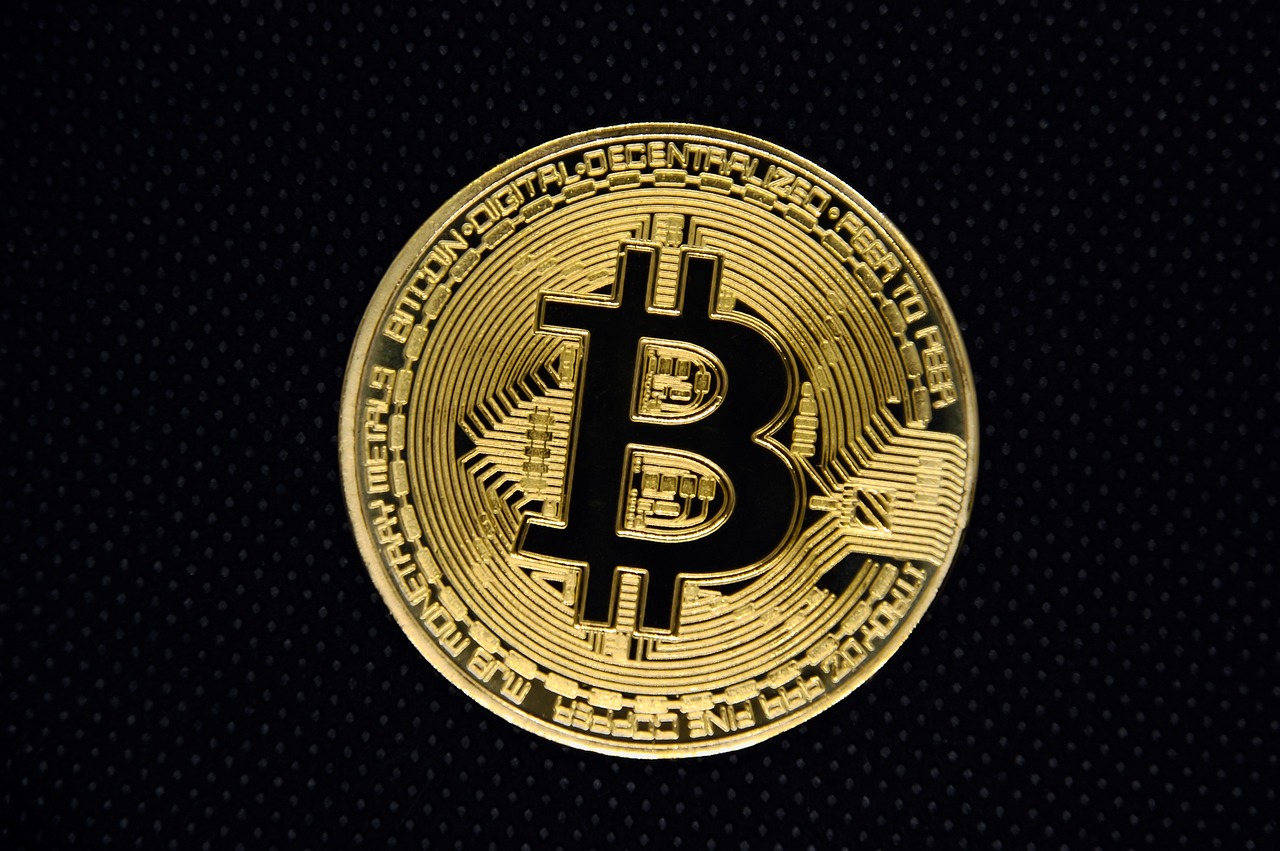The Role of Blockchain in Enhancing Digital Marketing Campaigns
In today's fast-paced digital landscape, marketers are constantly seeking innovative ways to connect with their audience. Enter blockchain technology, a game-changer that promises to revolutionize the way we approach digital marketing. Imagine a world where every interaction between brands and consumers is not only secure but also transparent and efficient. Sounds like a dream, right? Well, with blockchain, this dream is becoming a reality. This article explores how blockchain technology can enhance digital marketing campaigns by improving transparency, security, and efficiency, ultimately leading to more effective campaigns that resonate with consumers.
At its core, blockchain is a decentralized ledger technology that allows for secure and transparent transactions. Unlike traditional databases, which are controlled by a single entity, blockchain operates on a network of computers, ensuring that no single party has complete control over the data. This decentralization is what makes blockchain so appealing to various industries, including digital marketing. By leveraging its fundamental principles, marketers can gain insights into consumer behavior while maintaining a high level of data integrity.
As digital marketing evolves, so does the concern for data privacy. Consumers are becoming increasingly aware of how their information is used, and they demand more control over their personal data. Blockchain can enhance consumer privacy by allowing users to manage their data, leading to more trustworthy interactions between brands and consumers. Imagine a scenario where you, as a consumer, have the power to decide who accesses your data and how it’s used. This shift not only fosters trust but also builds loyalty, as customers feel more secure in their dealings with brands.
With blockchain technology, consumers are empowered like never before. They can manage their personal information, making informed decisions about what to share and with whom. This newfound power can create a strong bond between consumers and brands, as customers appreciate the transparency and control they have over their data. When consumers are in the driver's seat, they are more likely to engage with brands that respect their privacy.
One of the most exciting developments in blockchain is the concept of decentralized identity management. This system allows users to verify their identities without compromising sensitive information, enhancing security in digital marketing practices. Think of it as a digital lockbox where you can store your personal information securely while still being able to prove your identity when needed. This not only protects consumers but also builds trust in the brand's marketing efforts.
Blockchain's transparent nature allows consumers to track how their data is used, leading to greater accountability among marketers. Imagine being able to see exactly how your data contributes to a marketing campaign and how it benefits you in return. This level of transparency fosters trust in brand practices and encourages consumers to engage more actively with brands.
When it comes to targeted advertising, blockchain can facilitate more precise strategies by providing accurate consumer data while ensuring privacy. With blockchain, marketers can access valuable insights without infringing on consumer privacy, leading to more effective marketing strategies and improved return on investment. It’s like having a treasure map that leads you directly to your audience, ensuring that your marketing efforts hit the mark every time.
Fraudulent activities in digital marketing can lead to significant losses for brands. Fortunately, blockchain offers solutions to combat these issues by ensuring authenticity and reducing the risk of ad fraud. By implementing blockchain technology, marketers can protect their investments and ensure that their campaigns reach the right audience.
One of the most critical aspects of digital marketing is ensuring that ads are displayed to the intended audience. Blockchain can provide real-time ad verification, ensuring that ads reach genuine consumers while reducing instances of fraudulent clicks or impressions. This means that every dollar spent on advertising is more likely to yield positive results, ultimately enhancing the effectiveness of marketing campaigns.
Another exciting application of blockchain in digital marketing is the use of smart contracts. These self-executing contracts automate various aspects of campaign management, ensuring that terms are met before payments are made. This not only enhances trust but also improves efficiency in digital marketing transactions. Imagine a world where payments are automatically triggered once specific criteria are met, removing the need for manual oversight and reducing the risk of disputes.
Blockchain can revolutionize customer loyalty programs by creating more transparent and secure systems that reward customers effectively. Imagine a loyalty program where every point earned is securely recorded on the blockchain, ensuring that customers can trust the value of their rewards. This leads to increased engagement and brand loyalty, as customers feel valued and appreciated.
By tokenizing loyalty points on the blockchain, brands can create a more flexible and tradable rewards system. This enhances customer satisfaction and retention, as consumers can easily redeem or trade their points for products or services they truly want. It’s like turning loyalty points into a currency that holds real value, making the entire experience more rewarding for consumers.
Blockchain enables collaboration between brands, allowing for cross-brand loyalty programs. This means that customers can earn rewards from multiple brands, providing them with a more diverse and seamless experience. Imagine being able to accumulate points from your favorite coffee shop and redeem them at a nearby clothing store. This creates a win-win situation for both consumers and brands, fostering loyalty and increasing engagement.
- What is blockchain technology? Blockchain is a decentralized ledger technology that ensures secure and transparent transactions.
- How does blockchain improve data privacy? Blockchain allows consumers to control their personal data, leading to more trustworthy interactions between brands and consumers.
- Can blockchain help prevent fraud in digital marketing? Yes, blockchain can provide real-time ad verification and ensure authenticity, reducing the risk of ad fraud.
- What are smart contracts? Smart contracts are self-executing contracts on the blockchain that automate various aspects of campaign management.
- How can blockchain enhance customer loyalty programs? Blockchain can create more transparent and secure loyalty programs, tokenizing points for better flexibility and value.

Understanding Blockchain Technology
Blockchain technology is often described as a decentralized ledger system that records transactions across many computers in such a way that the registered transactions cannot be altered retroactively. This ingenious structure not only enhances security but also promotes transparency, making it a game-changer in various sectors, including digital marketing. Think of blockchain as a digital notebook that everyone can see but only a select few can write in. This ensures that once something is written down, it’s there for everyone to verify, creating a level of trust that traditional systems often lack.
At its core, blockchain operates on three fundamental principles: decentralization, transparency, and security. Each of these elements plays a crucial role in its application to digital marketing:
- Decentralization: Unlike traditional databases controlled by a central authority, blockchain is distributed across a network of computers. This means that no single entity has control over the entire system, reducing the risk of data manipulation.
- Transparency: Every transaction on the blockchain is visible to all participants. This level of openness ensures that brands are held accountable for their actions, fostering trust among consumers.
- Security: Transactions are encrypted and linked together in a chain, making it incredibly difficult for hackers to alter the data. This security feature is vital in protecting sensitive consumer information.
In the realm of digital marketing, these principles can be harnessed to create more effective campaigns. For instance, marketers can utilize blockchain to track consumer interactions and preferences in a secure manner, allowing for personalized marketing strategies without breaching privacy. Imagine receiving ads that are not only relevant to your interests but also come with the assurance that your data is safe. This is the future blockchain promises.
Moreover, the potential for smart contracts—self-executing contracts with the terms of the agreement directly written into code—can automate many processes in digital marketing. This means that once certain conditions are met, actions can be taken automatically, eliminating the need for intermediaries and speeding up transactions. Picture a world where your ad budget is only spent when your ads are successfully displayed to the right audience. That’s the kind of efficiency blockchain can bring to digital marketing campaigns.
As we delve deeper into this technology, it becomes clear that blockchain is not just a passing trend; it’s a transformative force that could reshape the digital marketing landscape. By leveraging its capabilities, brands can build stronger, more trustworthy relationships with consumers, ultimately leading to more successful marketing outcomes. The question remains, are you ready to embrace this revolution?

Improving Data Privacy
In the ever-evolving landscape of digital marketing, data privacy has emerged as a critical concern for both consumers and brands. With the advent of various data breaches and privacy scandals, consumers are becoming increasingly wary of how their personal information is collected, stored, and utilized. This is where blockchain technology steps in as a game changer. By utilizing a decentralized approach, blockchain empowers consumers to have more control over their data, leading to more trustworthy interactions between brands and their audiences.
Imagine a world where you, as a consumer, hold the keys to your personal information. With blockchain, this vision is becoming a reality. Instead of companies hoarding your data, you can choose what information to share and with whom. This paradigm shift not only enhances consumer empowerment but also fosters a sense of loyalty and trust. When customers feel secure about their data, they are more likely to engage with a brand and make purchases.
One of the most exciting aspects of blockchain technology is its ability to facilitate decentralized identity management. In a traditional system, verifying your identity often requires sharing sensitive information, which can be risky. However, blockchain allows users to verify their identities without compromising their data. This not only enhances security but also streamlines the process of identity verification in digital marketing practices.
Furthermore, the transparent nature of blockchain provides consumers with the ability to track how their data is used. This level of transparency is revolutionary, as it holds marketers accountable for their practices. Imagine being able to see exactly how your information is utilized and who has access to it. This kind of visibility can significantly enhance trust between consumers and brands, leading to stronger relationships and more effective marketing strategies.
In summary, blockchain technology is paving the way for improved data privacy in digital marketing. By empowering consumers, enhancing security through decentralized identity management, and providing transparency, blockchain is not just a technological advancement; it's a fundamental shift in the way brands interact with their audiences. As we continue to navigate this digital age, understanding and implementing blockchain will be crucial for brands looking to build trust and loyalty with their consumers.
- How does blockchain enhance data privacy?
Blockchain allows consumers to control their personal information, ensuring that they can choose what data to share and with whom. - What is decentralized identity management?
It is a system enabled by blockchain that allows users to verify their identities without compromising sensitive information. - Can consumers track how their data is used?
Yes, blockchain provides transparency, allowing consumers to see how their data is accessed and utilized by brands.

Consumer Empowerment
In the age of digital marketing, where consumers often feel like mere data points in a vast ocean of information, blockchain technology emerges as a beacon of hope, promising to restore power to the hands of the user. Imagine being able to control your own data, deciding who gets to see it, how it’s used, and even being rewarded for sharing it. This is the potential that blockchain brings to the table, transforming the relationship between brands and consumers into a more equitable partnership.
At its core, through blockchain revolves around the idea of transparency and control. With traditional marketing methods, consumers often have little insight into how their data is collected and utilized. However, blockchain provides a decentralized platform where users can track their data movements in real-time. This means that every time a brand accesses a user's information, the user is notified, allowing them to make informed decisions about their privacy. It’s like having a personal security guard for your data, ensuring that you know exactly who is watching.
Furthermore, this newfound control fosters a sense of trust and loyalty between consumers and brands. When customers feel secure in their interactions, they are more likely to engage with a brand, share their information, and ultimately become loyal advocates. The shift from a top-down approach, where companies dictate terms, to a more collaborative model where consumers have a say, can significantly enhance brand loyalty. Think of it as a dance where both partners lead; it’s a more harmonious and satisfying experience for everyone involved.
Another exciting aspect of blockchain technology is decentralized identity management. This innovative approach allows users to verify their identities without exposing sensitive information. Imagine being able to prove you are who you say you are without sharing your entire life story. This not only enhances security but also minimizes the risk of identity theft, a growing concern in the digital age. With blockchain, consumers can engage confidently with brands, knowing that their personal details are safeguarded.
In summary, empowering consumers through blockchain technology is not just about giving them control over their data; it’s about building a foundation of trust that benefits both consumers and brands. As we move towards a more digital future, the brands that embrace this paradigm shift will not only stand out but will also cultivate a loyal customer base that feels valued and respected. The future of digital marketing is bright, and it’s powered by the voices of the consumers.
- What is consumer empowerment in the context of blockchain?
Consumer empowerment refers to the ability of individuals to control their personal data and privacy, allowing them to make informed decisions about how their information is used. - How does blockchain enhance data privacy?
Blockchain enhances data privacy by providing a decentralized system where users can manage their information, track its usage, and decide who can access it. - What is decentralized identity management?
Decentralized identity management allows users to verify their identities without sharing sensitive information, thus enhancing security and privacy.

Decentralized Identity Management
In the ever-evolving landscape of digital marketing, emerges as a beacon of hope for both consumers and brands. Imagine a world where you, as a consumer, have complete control over your personal information, deciding who sees it and when. This is not just a dream; it's the promise of blockchain technology. By leveraging decentralized identity management, brands can engage with consumers more effectively while respecting their privacy.
So, how does it work? At its core, decentralized identity management utilizes blockchain's inherent capabilities to create a secure and immutable record of identities. This means that instead of relying on centralized databases, which are prone to breaches and misuse, consumers can manage their identities through a series of encrypted keys. This shift not only enhances security but also empowers users to verify their identities without revealing sensitive information, such as social security numbers or credit card details.
Moreover, this technology fosters a level of trust that has been sorely lacking in traditional marketing practices. When consumers know they have control over their data, they are more likely to engage with brands. For instance, if a brand wants to access a consumer's data for targeted advertising, the consumer can grant permission through a secure blockchain application. This transaction is recorded on the blockchain, ensuring transparency and accountability.
To illustrate the benefits, let’s consider a few key advantages of decentralized identity management:
- Enhanced Security: By eliminating centralized databases, the risk of data breaches is significantly reduced.
- Consumer Empowerment: Users can manage their data, leading to increased trust and loyalty.
- Transparency: Consumers can track how their data is being used, fostering a sense of security.
As we look to the future of digital marketing, decentralized identity management stands out as a transformative force. It not only protects consumer data but also paves the way for more meaningful interactions between brands and their audiences. Brands that adopt this technology will not only enhance their marketing strategies but also build a loyal customer base that feels valued and respected.
- What is decentralized identity management? Decentralized identity management refers to a system where individuals can control their personal information without relying on centralized authorities.
- How does blockchain enhance identity management? Blockchain provides a secure and transparent way to store and manage identities, reducing the risk of data breaches.
- Why is consumer empowerment important in marketing? When consumers feel they have control over their data, they are more likely to trust and engage with brands.
- Can brands still collect data with decentralized identity management? Yes, but they will need to obtain explicit permission from consumers, leading to more ethical data practices.

Increased Transparency
In today's digital landscape, where consumers are becoming increasingly aware of data privacy issues, transparency has emerged as a critical factor for brands striving to build trust. Blockchain technology, with its inherent characteristics, offers a revolutionary approach to ensuring that consumers can see exactly how their data is being used. Imagine a world where every interaction is recorded on a public ledger, visible to all, yet secure from manipulation. This is the promise of blockchain.
When consumers can track the journey of their data—from the moment they share it with a brand to how it is used in marketing campaigns—they feel a sense of empowerment. This transparency not only fosters trust but also encourages a more ethical approach to marketing practices. Brands can no longer hide behind vague privacy policies; instead, they are held accountable for their actions. For instance, if a consumer opts in to receive targeted ads, they can verify that their data is being used as promised.
Moreover, the transparency offered by blockchain can help brands differentiate themselves in a crowded marketplace. In an age where consumers are bombarded with choices, being able to showcase ethical data usage can be a significant competitive advantage. Brands that prioritize transparency can build a loyal customer base, as consumers are more likely to engage with companies that respect their privacy and provide clear information about data handling.
Consider the following aspects of increased transparency through blockchain:
- Accountability: Brands must adhere to their stated data policies, knowing that consumers can easily verify their compliance.
- Consumer Trust: When consumers see how their data is used, they are more likely to trust brands, leading to stronger relationships.
- Ethical Marketing: Transparency encourages brands to adopt ethical marketing practices, which can enhance their reputation.
In summary, the increased transparency facilitated by blockchain technology not only benefits consumers but also empowers brands to foster deeper relationships built on trust and accountability. As this technology continues to evolve, we can expect to see more brands embracing transparency as a core component of their marketing strategies.
Q1: How does blockchain ensure data transparency?
A1: Blockchain records transactions on a public ledger, allowing consumers to see how their data is used while ensuring it remains secure and unalterable.
Q2: Can increased transparency lead to better customer relationships?
A2: Absolutely! When consumers feel informed and empowered about their data usage, they are more likely to trust and engage with brands.
Q3: What are the benefits of transparency in marketing?
A3: Transparency can enhance brand loyalty, improve customer trust, and promote ethical marketing practices, which can ultimately lead to higher sales.

Targeted Advertising
In the fast-paced world of digital marketing, has emerged as a game changer, allowing brands to reach their ideal customers with precision. Imagine being able to deliver ads that resonate with consumers based on their preferences, behaviors, and previous interactions. Well, thanks to blockchain technology, this dream is becoming a reality. By leveraging the decentralized nature of blockchain, marketers can access accurate consumer data while ensuring that privacy is respected. This not only leads to more effective marketing strategies but also significantly enhances the return on investment (ROI) for businesses.
One of the most exciting aspects of blockchain in targeted advertising is its ability to provide verified consumer data. Traditional methods often rely on estimates or assumptions, leading to wasted resources and ineffective campaigns. However, with blockchain, brands can obtain real-time insights into consumer behavior, preferences, and demographics. This data-driven approach enables marketers to tailor their advertisements to meet the specific needs of their audience.
Moreover, blockchain enhances the trust factor in targeted advertising. Consumers are becoming increasingly wary of how their data is used, and many are concerned about privacy violations. By utilizing blockchain, brands can offer transparency in how they collect and use consumer information. This transparency fosters a sense of trust, making consumers more likely to engage with personalized ads. When customers see that a brand respects their privacy and provides them with relevant content, they are more inclined to interact, click, and ultimately convert.
To illustrate the impact of blockchain on targeted advertising, consider the following benefits:
- Enhanced Accuracy: With verified data, brands can create highly targeted campaigns that resonate with their audience.
- Improved Privacy: Consumers have control over their data, making them more comfortable with sharing information.
- Higher Engagement Rates: Personalized ads lead to greater consumer engagement and interaction.
- Better ROI: By reaching the right audience, brands can maximize their advertising spend and increase conversions.
In conclusion, blockchain technology is not just a buzzword; it is a powerful tool that can revolutionize targeted advertising. By providing accurate data, ensuring privacy, and fostering trust, blockchain allows brands to create campaigns that truly resonate with consumers. As the landscape of digital marketing continues to evolve, those who embrace blockchain will find themselves at the forefront of innovation, delivering ads that not only reach their audience but also create lasting connections.
Q: How does blockchain improve targeted advertising?
A: Blockchain improves targeted advertising by providing verified consumer data, ensuring privacy, and fostering trust between brands and consumers.
Q: What are the benefits of using blockchain for marketers?
A: Benefits include enhanced accuracy, improved privacy, higher engagement rates, and better return on investment.
Q: Can consumers control their data with blockchain?
A: Yes, blockchain technology allows consumers to manage their personal information, giving them control over how their data is used.

Fraud Prevention in Digital Marketing
Fraudulent activities in digital marketing can lead to significant losses, eroding trust between brands and consumers. In an era where every click and impression counts, the stakes are higher than ever. The question is, how can blockchain technology step in to save the day? By offering a robust framework that ensures authenticity and reduces the risk of ad fraud, blockchain is not just a buzzword; it’s a game-changer.
One of the most compelling features of blockchain is its ability to provide real-time ad verification. Imagine a world where every advertisement you see is guaranteed to be displayed to the intended audience. This is no longer a distant dream; it’s a reality made possible by blockchain. Through its decentralized nature, blockchain can track ad placements and interactions, ensuring that brands pay only for genuine clicks and impressions. This level of transparency is crucial in combating fraudulent activities that have plagued digital marketing for years.
But that’s not all. Smart contracts, another revolutionary aspect of blockchain technology, can automate various facets of campaign management. Picture this: a digital marketing campaign where terms are automatically enforced before any payments are made. If a specific condition isn’t met—say, a minimum number of views or clicks—then the payment simply doesn’t go through. This not only enhances trust but also streamlines the entire process, making it more efficient for both marketers and consumers.
To illustrate the impact of blockchain on fraud prevention, consider the following table:
| Feature | Traditional Method | Blockchain Method |
|---|---|---|
| Ad Verification | Manual checks, prone to errors | Real-time, automated verification |
| Payment Processing | Delayed and often disputed | Instant, condition-based payments |
| Data Integrity | Centralized databases, vulnerable to hacks | Decentralized ledger, highly secure |
As the digital landscape continues to evolve, the need for effective fraud prevention strategies becomes increasingly crucial. The integration of blockchain technology not only addresses these challenges but also enhances the overall integrity of digital marketing campaigns. By leveraging the power of blockchain, marketers can ensure that their advertising efforts yield genuine results, ultimately leading to better ROI and stronger consumer relationships.
- What is ad fraud? Ad fraud refers to any deceptive activity that misleads advertisers into paying for non-existent or illegitimate ad placements.
- How does blockchain prevent ad fraud? Blockchain provides a transparent and immutable record of ad placements and interactions, ensuring that brands only pay for genuine clicks and impressions.
- What are smart contracts? Smart contracts are self-executing contracts with the terms of the agreement directly written into code, allowing for automated and secure transactions.
- Can blockchain improve trust in digital marketing? Yes, by enhancing transparency and accountability, blockchain fosters trust between brands and consumers.

Ad Verification
In the fast-paced world of digital marketing, ensuring that your advertisements reach the right audience is crucial. However, the prevalence of fraud has made ad verification a pressing concern. Imagine investing your hard-earned budget into a campaign, only to find out that your ads were never seen by real consumers. This is where blockchain technology steps in, offering a solution that not only verifies ad placements but also enhances overall trust within the advertising ecosystem.
Blockchain provides a transparent and immutable ledger that records every transaction, including ad placements. This means that marketers can track where their ads are displayed in real-time, ensuring they are reaching the intended audience. With the ability to verify the authenticity of impressions and clicks, brands can significantly reduce the risk of fraudulent activities, such as bots generating fake clicks. By utilizing blockchain for ad verification, companies can ensure that they are not just throwing money into a black hole but are instead investing in real, measurable results.
Furthermore, the decentralized nature of blockchain means that data is not controlled by a single entity, which enhances accountability. Advertisers can access a transparent record of their ad performance, including metrics such as viewability rates and engagement levels. This level of transparency fosters a culture of trust between advertisers and publishers, as both parties can verify the accuracy of reported data without relying on third-party intermediaries.
To illustrate the impact of blockchain on ad verification, consider the following table that compares traditional ad verification methods with blockchain-based solutions:
| Aspect | Traditional Ad Verification | Blockchain-Based Ad Verification |
|---|---|---|
| Transparency | Limited visibility into ad placements | Full transparency with an immutable ledger |
| Data Control | Data controlled by intermediaries | Decentralized control, enhancing trust |
| Fraud Prevention | Reactive measures, often after fraud occurs | Proactive verification in real-time |
| Cost Efficiency | Higher costs due to reliance on third parties | Reduced costs through automation and direct verification |
In conclusion, the integration of blockchain technology into ad verification processes is not just a trend; it's a necessary evolution in digital marketing. As brands continue to seek greater accountability and efficiency in their advertising efforts, blockchain offers a robust solution that enhances trust and transparency. By adopting these innovative practices, marketers can ensure that their campaigns are not only effective but also ethical and accountable.
- What is ad verification? Ad verification is the process of ensuring that advertisements are displayed correctly and reach the intended audience without being affected by fraud.
- How does blockchain improve ad verification? Blockchain enhances ad verification by providing a transparent, immutable ledger that records ad placements and interactions, ensuring accountability and reducing fraud.
- Can blockchain eliminate ad fraud completely? While blockchain significantly reduces the risk of ad fraud, it may not eliminate it entirely. However, it provides tools for better tracking and verification.

Smart Contracts for Campaign Management
In the fast-paced world of digital marketing, efficiency is key, and smart contracts are emerging as a game-changer. These self-executing contracts, with the terms of the agreement directly written into code, automate various aspects of campaign management, ensuring that all parties involved meet their obligations before any transactions occur. Imagine a world where you don’t have to chase down late payments or worry about whether your ads are being displayed correctly. Smart contracts streamline this process, providing a layer of trust and transparency that traditional methods simply cannot offer.
One of the most significant advantages of using smart contracts in digital marketing is the reduction of human error. By automating processes, brands can eliminate the risk of miscommunication and misunderstandings that often lead to costly mistakes. For instance, if an influencer is contracted to promote a product, a smart contract can automatically release payment once certain metrics—like engagement rates or click-through rates—are met. This not only saves time but also builds a stronger relationship between brands and their partners.
Moreover, smart contracts can enhance accountability in marketing campaigns. All actions taken are recorded on the blockchain, creating an immutable audit trail. This means that brands can easily track the performance of their campaigns and verify that all parties are fulfilling their commitments. If a campaign fails to deliver the promised results, brands can quickly identify where the breakdown occurred and address it without finger-pointing or blame-shifting.
To illustrate the impact of smart contracts on campaign management, consider the following table that outlines the key benefits:
| Benefit | Description |
|---|---|
| Automation | Reduces the need for manual intervention, speeding up processes. |
| Transparency | All transactions and agreements are recorded on the blockchain. |
| Trust | Builds trust between brands and partners through verified actions. |
| Cost-Effectiveness | Reduces administrative costs associated with campaign management. |
In conclusion, the integration of smart contracts into digital marketing campaigns is not just a trend; it’s a revolution that enhances efficiency, accountability, and trust. As brands continue to navigate the complexities of the digital landscape, leveraging this technology will likely become a standard practice, leading to more successful and impactful marketing strategies.
- What are smart contracts? Smart contracts are self-executing contracts with the terms written into code, allowing for automated processes and transactions.
- How do smart contracts improve campaign management? They automate tasks, reduce human error, and provide transparency and accountability in marketing campaigns.
- Are smart contracts secure? Yes, they operate on blockchain technology, which is known for its high level of security and immutability.

Enhancing Customer Loyalty Programs
In today's competitive marketplace, brands are constantly seeking innovative ways to engage customers and foster loyalty. One of the most promising solutions lies in blockchain technology. By leveraging this decentralized ledger system, businesses can transform their customer loyalty programs into more transparent, secure, and rewarding experiences. Imagine a world where your loyalty points are not just numbers in an account but valuable assets that you can trade, sell, or use across different brands. This is the future that blockchain offers!
One of the key advantages of blockchain in loyalty programs is the tokenization of loyalty points. Traditionally, loyalty points can be cumbersome and often come with restrictions, making it difficult for customers to redeem them effectively. However, by tokenizing these points on a blockchain, brands can create a more flexible and tradable rewards system. Customers can easily transfer their points, exchange them for products or services, or even use them in conjunction with other brands. This not only enhances customer satisfaction but also encourages repeat business, as customers feel they have more control over their rewards.
Moreover, blockchain technology facilitates cross-brand loyalty initiatives. Imagine being able to earn points from one brand and use them at another, creating a seamless experience for consumers. This interconnectivity can lead to a more engaging and rewarding customer journey. For instance, a coffee shop might partner with a bookstore, allowing customers to earn loyalty points at both locations. As a result, customers are more likely to engage with both brands, increasing overall sales and customer retention.
To illustrate this further, consider the following table that outlines the benefits of blockchain-enhanced loyalty programs:
| Benefit | Description |
|---|---|
| Transparency | Customers can see how many points they have and how they can be used, fostering trust. |
| Security | Blockchain's decentralized nature protects customer data and prevents fraud. |
| Flexibility | Tokenized points can be traded or redeemed across multiple brands, enhancing customer choice. |
| Engagement | Cross-brand initiatives can lead to increased customer interactions and loyalty. |
In conclusion, by integrating blockchain technology into customer loyalty programs, brands can create a more dynamic and engaging experience for their customers. This not only drives customer satisfaction and retention but also sets brands apart in a crowded market. As businesses continue to explore the potential of blockchain, we can expect to see loyalty programs evolve into powerful tools that not only reward customers but also build lasting relationships.
- How does blockchain improve customer loyalty programs?
Blockchain enhances transparency, security, and flexibility, allowing customers to manage and utilize their loyalty points more effectively. - Can loyalty points be transferred between different brands?
Yes, blockchain enables cross-brand loyalty initiatives, allowing customers to use their points across various participating brands. - What are the security benefits of using blockchain for loyalty programs?
Blockchain's decentralized nature protects customer data, reduces fraud, and ensures that loyalty points are secure and verifiable.

Tokenization of Loyalty Points
Imagine walking into your favorite store and being greeted not just as a customer, but as a valued member of an exclusive club. This is the power of enabled by blockchain technology. By converting traditional loyalty points into digital tokens, brands can create a more dynamic and flexible rewards system that resonates with today's consumers. No longer are customers bound by the limitations of traditional loyalty programs, which often come with expiration dates and restrictions. Instead, tokenized loyalty points can be traded, transferred, or redeemed in a way that suits the individual’s preferences.
In a world where consumer choices are abundant, offering a unique loyalty experience can set a brand apart from its competitors. Tokenization allows brands to enhance customer satisfaction by providing options that were previously unimaginable. For instance, customers can accumulate points from multiple purchases across different platforms and redeem them for rewards that matter most to them, whether it’s discounts, exclusive products, or even experiences. This creates a sense of ownership and engagement that fosters brand loyalty.
Moreover, the transparency of blockchain ensures that customers can track their points in real-time, knowing exactly how many they have and how they can use them. This reduces frustration and builds trust, as customers can see the value of their loyalty clearly reflected in the tokens they possess. In essence, tokenization transforms loyalty points into a currency of trust and engagement, paving the way for a more personalized shopping experience.
To illustrate how tokenization works, consider the following table:
| Traditional Loyalty Points | Tokenized Loyalty Points |
|---|---|
| Fixed redemption options | Flexible and tradable rewards |
| Expiration dates | No expiration; points remain valid |
| Limited to one brand | Can be used across multiple brands |
| Non-transferable | Transferable between users |
As we move forward, the potential for tokenized loyalty points is immense. Brands can collaborate to create cross-brand loyalty programs, allowing customers to earn and spend points across a network of businesses. This not only enhances the customer experience but also drives traffic and sales for participating brands. The future of loyalty programs is not just about rewarding purchases; it's about creating a community of engaged customers who feel connected to the brands they love.
- What is tokenization of loyalty points? Tokenization of loyalty points refers to converting traditional loyalty points into digital tokens using blockchain technology, allowing for more flexible and transparent rewards systems.
- How does tokenization improve customer experience? It enhances customer experience by providing flexibility in how points are earned and redeemed, as well as ensuring transparency and trust through real-time tracking.
- Can tokenized loyalty points be used across different brands? Yes, tokenized loyalty points can facilitate cross-brand loyalty programs, allowing customers to earn and spend points across multiple businesses.

Cross-Brand Loyalty Initiatives
Imagine a world where your loyalty points from your favorite coffee shop could be used for discounts at a clothing store or even a movie theater. Sounds exciting, right? powered by blockchain technology are making this dream a reality. By leveraging the decentralized nature of blockchain, brands can collaborate to create a seamless and rewarding experience for their customers. This innovative approach not only enhances customer satisfaction but also fosters a sense of community among brands and their consumers.
So, how does this work? Essentially, blockchain allows multiple brands to share and manage loyalty points in a secure and transparent manner. Each brand can issue its own tokens or points, which can then be exchanged or redeemed across participating brands. This means that when you earn points at one store, you can use them at another, giving you more flexibility and value for your purchases. For example, if you buy a pair of shoes and earn loyalty points, you could use those points for a discount on your next meal at a partnered restaurant. This not only encourages spending but also promotes a sense of loyalty across multiple brands.
Furthermore, the transparency provided by blockchain ensures that customers can easily track their points and understand how they can be used. This builds trust and encourages customers to engage more with the brands involved. Brands can also analyze aggregated data from these initiatives to better understand consumer behavior, allowing for more tailored marketing strategies and promotions. In essence, cross-brand loyalty initiatives not only enhance customer experience but also drive business growth for participating brands.
To illustrate the potential of these initiatives, let’s consider a hypothetical example involving three brands: a coffee shop, a gym, and a clothing retailer. Through a blockchain-enabled loyalty program, customers can earn points at the coffee shop for every purchase, which can then be redeemed for discounts at the gym or clothing retailer. This type of collaboration can lead to increased foot traffic and sales for all participating brands as customers are more likely to engage with multiple brands to maximize their rewards.
In conclusion, represent a significant evolution in how brands can interact with their customers. By leveraging blockchain technology, brands can create a more integrated and rewarding experience that not only enhances customer loyalty but also drives collaboration and innovation within the marketplace. As more brands recognize the benefits of this approach, we can expect to see a shift towards more interconnected loyalty programs that truly put the customer first.
- What are cross-brand loyalty initiatives?
Cross-brand loyalty initiatives allow customers to use loyalty points earned from one brand at other participating brands, enhancing the value of those points. - How does blockchain facilitate these initiatives?
Blockchain provides a secure and transparent platform for brands to share and manage loyalty points, ensuring trust and accountability. - What are the benefits for consumers?
Consumers gain flexibility and more options for redeeming their loyalty points, leading to a more rewarding shopping experience. - How do brands benefit from cross-brand loyalty initiatives?
Brands can increase customer engagement, drive sales, and gain insights into consumer behavior through shared data.
Frequently Asked Questions
- What is blockchain technology?
Blockchain technology is a decentralized ledger system that securely records transactions across multiple computers. This ensures that the data cannot be altered retroactively, providing transparency and security.
- How does blockchain enhance data privacy in digital marketing?
Blockchain enhances data privacy by giving consumers control over their personal information. Users can manage who accesses their data, fostering trust and transparency between brands and consumers.
- Can blockchain prevent ad fraud?
Yes! Blockchain can significantly reduce ad fraud by providing real-time verification of ads. It ensures that ads are shown to the intended audience and helps track clicks and impressions accurately.
- What are smart contracts and how do they relate to digital marketing?
Smart contracts are self-executing contracts with the terms of the agreement directly written into code. In digital marketing, they automate campaign management, ensuring that payments are made only when specific conditions are met.
- How can blockchain improve customer loyalty programs?
Blockchain can revolutionize loyalty programs by tokenizing loyalty points. This allows for a more flexible rewards system and enables cross-brand loyalty initiatives, enhancing customer satisfaction and retention.
- What is decentralized identity management?
Decentralized identity management is a system that allows users to verify their identities without sharing sensitive information. It enhances security in digital marketing by protecting consumer data while ensuring authenticity.
- How does blockchain facilitate targeted advertising?
Blockchain provides accurate consumer data while ensuring privacy, allowing marketers to create more effective targeted advertising strategies. This leads to improved return on investment for marketing campaigns.
- What are the benefits of increased transparency in digital marketing?
Increased transparency builds trust between consumers and brands. With blockchain, consumers can track how their data is used, leading to greater accountability among marketers and more trustworthy interactions.



















